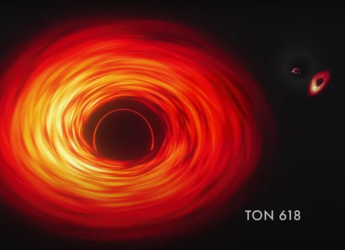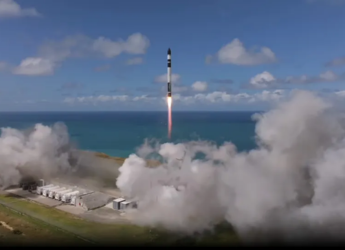- Home
- Science
- Science News
- Mars More Seismically Active Than Previously Thought, Researchers Say
Mars More Seismically Active Than Previously Thought, Researchers Say
Researchers hope their discovery could shed light on why the Red Planet no longer has a magnetic field.

Mars experiences frequent quakes in the same region, researchers said
Mars is much more similar to Earth than previously thought. Researchers have found that the Red Planet is experiencing 'Marsquakes' due to ongoing volcanic activity beneath its dusty, barren surface, just like earthquakes strike our planet. The researchers discovered 47 previously undetected Marsquakes beneath the Martian crust in a specific region, called Cerberus Fossae, that is less than 20 million years old. This has come as a surprising new discovery. For a long time, scientists believed nothing much was happening inside Mars, which has a very weak magnetic field.
Planetary magnetic fields are usually generated inside the planet. For instance, Earth's magnetic field is global and generated in the fluid outer core by a self-exciting dynamo process and the magnetic field stretches out to several kilometres out in space. In fact, a magnetic field acts as a shield against cosmic radiation that might destroy life.
On the other hand, the magnetic field is present only in patches on Mars. It is formed by the solar wind directly interacting with the Martian atmosphere. This results in higher radiation levels on Mars even though it is more distant from the Sun.
The researchers, from Australian National University, hope their discovery could shed light on why the Red Planet no longer has a magnetic field. They have published their findings in the Nature Communications journal.
“The Marsquakes indirectly help us understand whether convection is occurring inside of the planet's interior, and if this convention is happening, which it looks like it is based on our findings, then there must be another mechanism at play that is preventing a magnetic field from developing on Mars,” said geophysicist and study co-author Hrvoje Tkalčić.
Scientists also previously thought that Marsquakes could be caused by tectonic forces but these findings suggest magma in the Martian mantle is still active. Tkalčić said that the fact that all the quakes on Mars were detected in the same area suggests that the planet is more seismically active than scientists previously thought.
Get your daily dose of tech news, reviews, and insights, in under 80 characters on Gadgets 360 Turbo. Connect with fellow tech lovers on our Forum. Follow us on X, Facebook, WhatsApp, Threads and Google News for instant updates. Catch all the action on our YouTube channel.
Related Stories
- Samsung Galaxy Unpacked 2025
- ChatGPT
- Redmi Note 14 Pro+
- iPhone 16
- Apple Vision Pro
- Oneplus 12
- OnePlus Nord CE 3 Lite 5G
- iPhone 13
- Xiaomi 14 Pro
- Oppo Find N3
- Tecno Spark Go (2023)
- Realme V30
- Best Phones Under 25000
- Samsung Galaxy S24 Series
- Cryptocurrency
- iQoo 12
- Samsung Galaxy S24 Ultra
- Giottus
- Samsung Galaxy Z Flip 5
- Apple 'Scary Fast'
- Housefull 5
- GoPro Hero 12 Black Review
- Invincible Season 2
- JioGlass
- HD Ready TV
- Laptop Under 50000
- Smartwatch Under 10000
- Latest Mobile Phones
- Compare Phones
- Realme 16 5G
- Redmi Turbo 5
- Redmi Turbo 5 Max
- Moto G77
- Moto G67
- Realme P4 Power 5G
- Vivo X200T
- Realme Neo 8
- HP HyperX Omen 15
- Acer Chromebook 311 (2026)
- Lenovo Idea Tab Plus
- Realme Pad 3
- HMD Watch P1
- HMD Watch X1
- Haier H5E Series
- Acerpure Nitro Z Series 100-inch QLED TV
- Asus ROG Ally
- Nintendo Switch Lite
- Haier 1.6 Ton 5 Star Inverter Split AC (HSU19G-MZAID5BN-INV)
- Haier 1.6 Ton 5 Star Inverter Split AC (HSU19G-MZAIM5BN-INV)

















